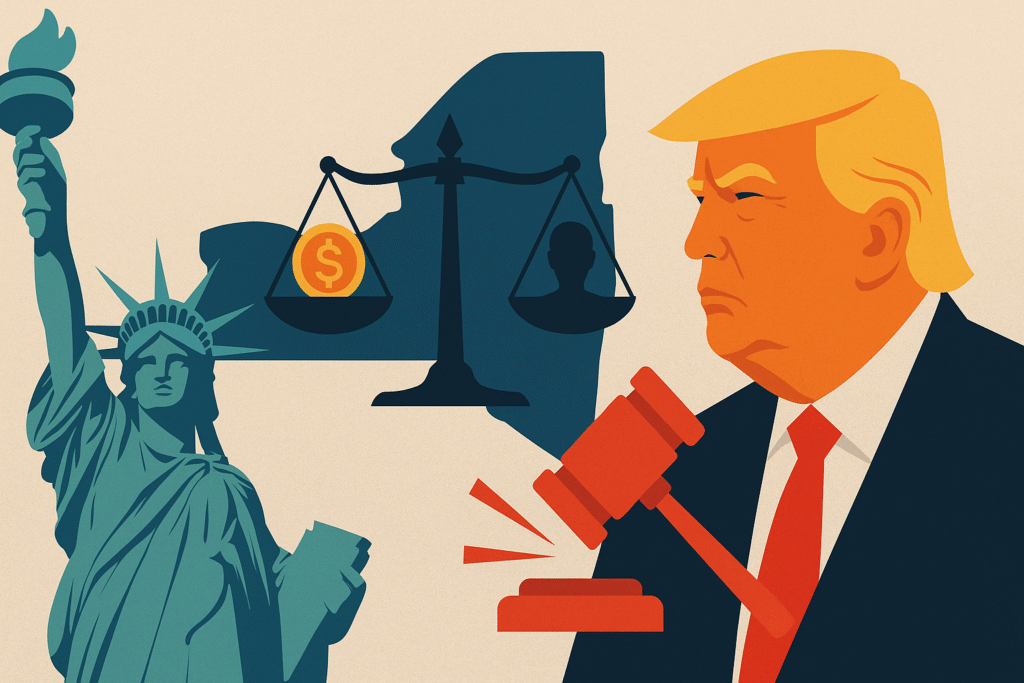President Donald Trump has escalated his criticism of New York’s judicial reforms, warning that his administration may impose sanctions on states with policies he views as harmful to public safety and business interests. At the center of the controversy is the state’s Cashless Bail law, which Trump claims fuels crime and undermines investor confidence, particularly in the technology sector.
Trump’s Position
In remarks delivered Monday, Trump described the Cashless Bail law as part of a wider set of “anti-business and anti-safety” policies. He said his administration is exploring potential responses, including financial penalties or federal restrictions, against states that implement similar measures. Trump argued that easing bail requirements not only weakens law enforcement but also creates an uncertain climate for companies looking to invest or expand.
New York Pushes Back
State leaders quickly rejected the president’s claims. Officials clarified that the Cashless Bail law does not abolish cash bail altogether, but rather restricts its use in specific non-violent cases. The goal, they said, is to prevent economically disadvantaged defendants from being held in pretrial detention solely due to inability to pay.
Authorities also emphasized that there is no conclusive evidence linking the law to increased crime rates. Instead, they pointed to broader socioeconomic challenges as contributing factors. A spokesperson for Governor Kathy Hochul stressed that the reform “protects fairness in the justice system while allowing judges to retain authority in serious and violent cases.”
A Broader Debate
Introduced in 2020 and later amended, the Cashless Bail law has long been a lightning rod in political debates. Supporters argue it advances equity by reducing wealth-based disparities in the justice system. Critics, however, contend that it compromises community safety and burdens law enforcement.
Trump’s intervention adds a new dimension to the debate, connecting state-level justice reforms to federal trade and security policies. His stance highlights growing friction between Washington and New York, particularly as the state faces heightened concerns over crime and economic pressures.
What Comes Next
The White House has not outlined specific sanctions, but analysts warn that Trump’s comments could set the stage for a legal and political confrontation between federal and state governments. The president’s strategy, observers suggest, reflects an effort to frame local justice reforms as national economic and security threats.
For New York, the controversy underscores the continuing challenge of balancing criminal justice reform with public safety — a balancing act now complicated by the prospect of direct federal intervention.



